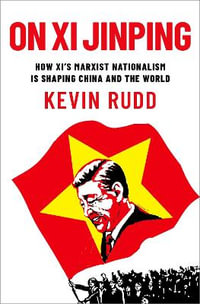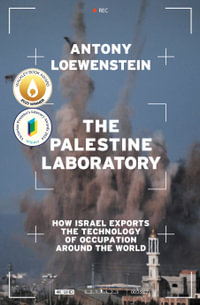What do we owe Iraq?
America is up to its neck in nation building--but the public debate, focused on getting the troops home, devotes little attention to why we are building a new Iraqi nation, what success would look like, or what principles should guide us. What We Owe Iraq sets out to shift the terms of the debate, acknowledging that we are nation building to protect ourselves while demanding that we put the interests of the people being governed--whether in Iraq, Afghanistan, Kosovo, or elsewhere--ahead of our own when we exercise power over them.
Noah Feldman argues that to prevent nation building from turning into a paternalistic, colonialist charade, we urgently need a new, humbler approach. Nation builders should focus on providing security, without arrogantly claiming any special expertise in how successful nation-states should be made. Drawing on his personal experiences in Iraq as a constitutional adviser, Feldman offers enduring insights into the power dynamics between the American occupiers and the Iraqis, and tackles issues such as Iraqi elections, the prospect of successful democratization, and the way home.
Elections do not end the occupier's responsibility. Unless asked to leave, we must resist the temptation of a military pullout before a legitimately elected government can maintain order and govern effectively. But elections that create a legitimate democracy are also the only way a nation builder can put itself out of business and--eventually--send its troops home.
Feldman's new afterword brings the Iraq story up-to-date since the book's original publication in 2004, and asks whether the United States has acted ethically in pushing the political process in Iraq while failing to control the security situation; it also revisits the question of when, and how, to withdraw.
Industry Reviews
One of Choice's Outstanding Academic Titles for 2005 "Powerful and important... The book, like its author, is an unusual blend: part theoretical treatise, part political analysis, part memoir. Above all, it is a plea to the American conscience to take seriously the responsibility the United States has assumed to help the Iraqi people build the democracy Feldman believes they need and deserve... As American citizens, Feldman insists, we are all responsible for what happens in Iraq."--Robert Kagan, New York Times Book Review "In What We Owe Iraq--part theoretical treatise, part political analysis, part memoir--Noah Feldman ... makes the case that when the United States invaded Iraq, it not only toppled a tyrant but also undertook a 'trusteeship' on behalf of the Iraqi people."--New York Times Book Review "An earnest, thoughtful brief against those who would have the U.S. withdraw before our job there is done, a temptation that will grow harder to resist in the months ahead. Mr. Feldman's emphasis on serving American interests injects a welcome dose of realism into his ethical meditations. America's de facto rule of the conquered country is a trusteeship, he insists, obliging us to think of ourselves as representatives of the Iraqi people, accountable to their views and responsible, ultimately, for restoring their sovereignty."--Wall Street Journal "Written with tempered passion and a grounded sense of the possibilities, Feldman's book nicely bridges theory and practice."--Publishers Weekly "Valuable... What We Owe Iraq ... lays out clearly just how we avoided delivering whatever we owed Iraq in the way of democracy... Feldman thinks it is actually in our own interests to foster a legitimate democratic government in Iraq in order to combat terrorism effectively, as well as being the right thing to do."--Andrew Cockburn, The Nation "Insightful, accessible and highly recommended for policymakers and readers interested in understanding the opportunities and hazards that will confront America as the world's foremost nation-builder?. Feldman details the behind-the-scenes power politics of the U.S. occupation and delivers a persuasive appeal for a more grassroots approach to nation building--that is, an approach seen by most Iraqis as legitimized by local input. He argues that nation building can be an effective long-term strategy to fight terrorism if its purpose is to create stable democracies. Feldman's approach offers preventive medicine against insurgency and terrorism as well as a practical strategy for a longer-term global war of ideas."--Richard A. Clarke, Washington Post Book World "A well-argued call for a long-term U.S. commitment to Iraq. The book is original and refreshingly free of ideology and partisanship."--Andrew Apostolou, New York Post "This short penetrating study ... examines the ethics of nation-building, exploring its challenges from the perspectives of law, democratic theory, and political morality... This timely, carefully reasoned, and elegantly written book is an important contribution to the literature on political development."--Choice "An informed, thoughtful examination of why the U.S. is trying to build a new Iraqi nation, what would be considered a success, and what principles should be followed."--H. J. Kirchhoff, Globe and Mail
























